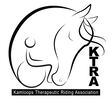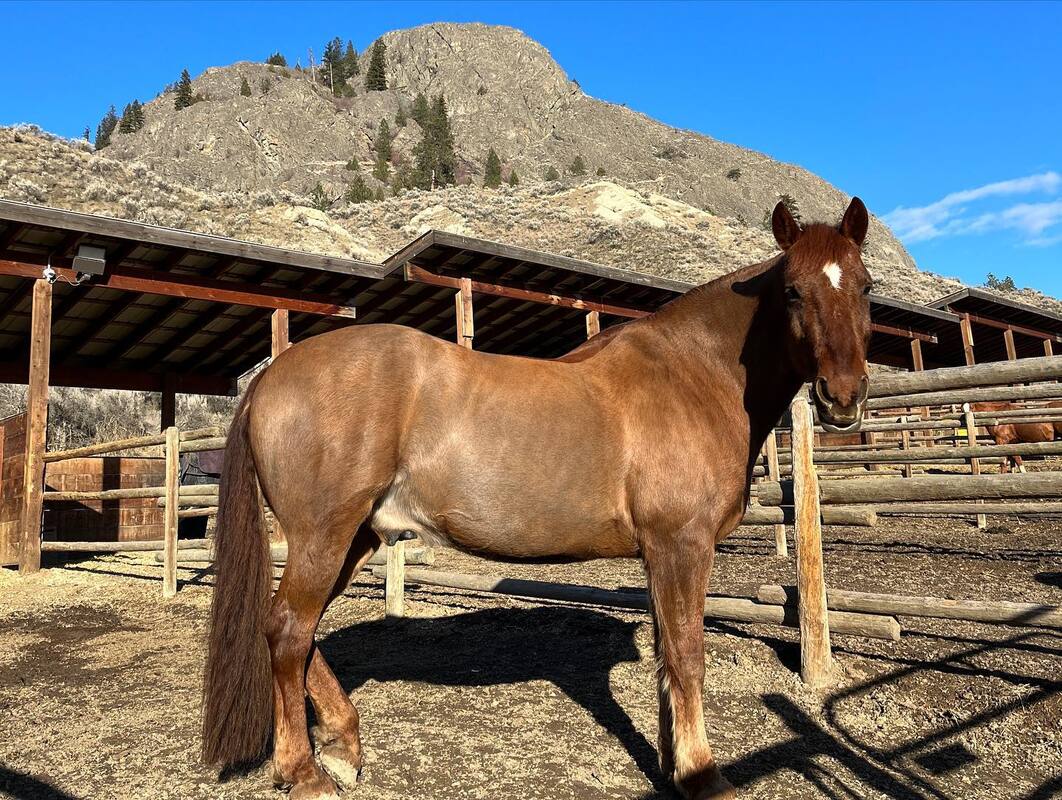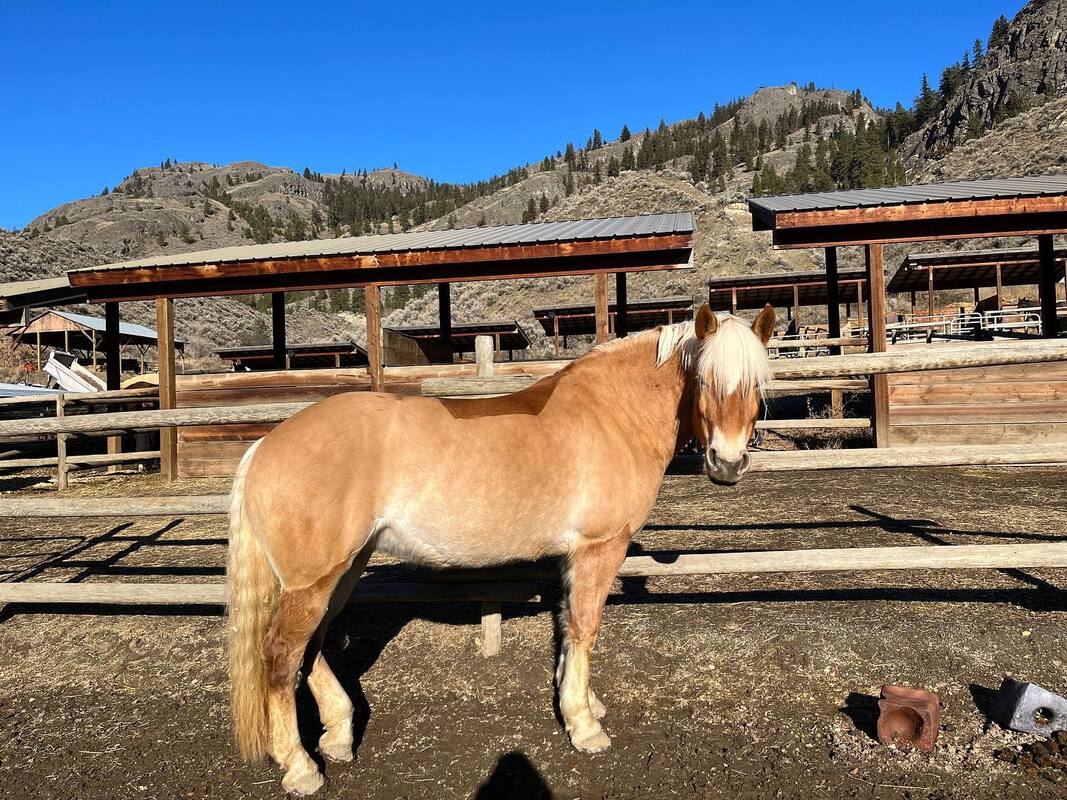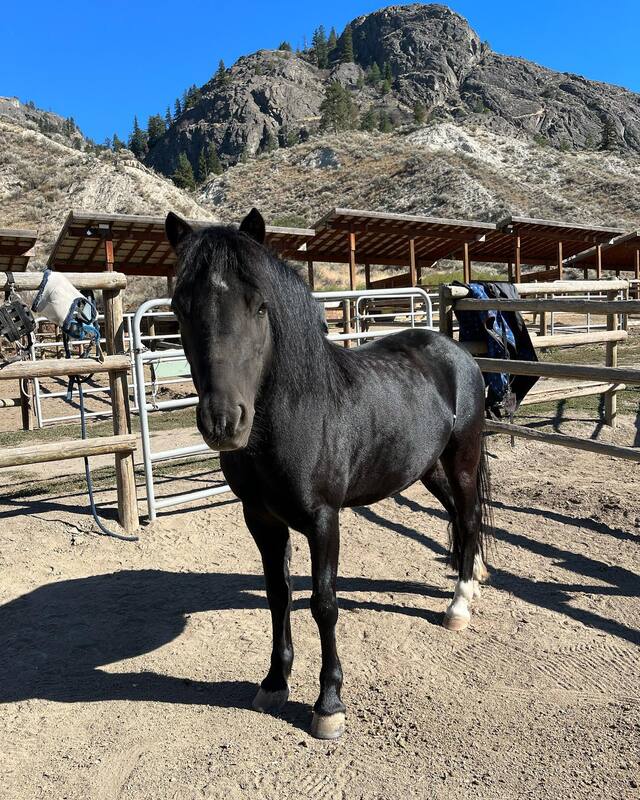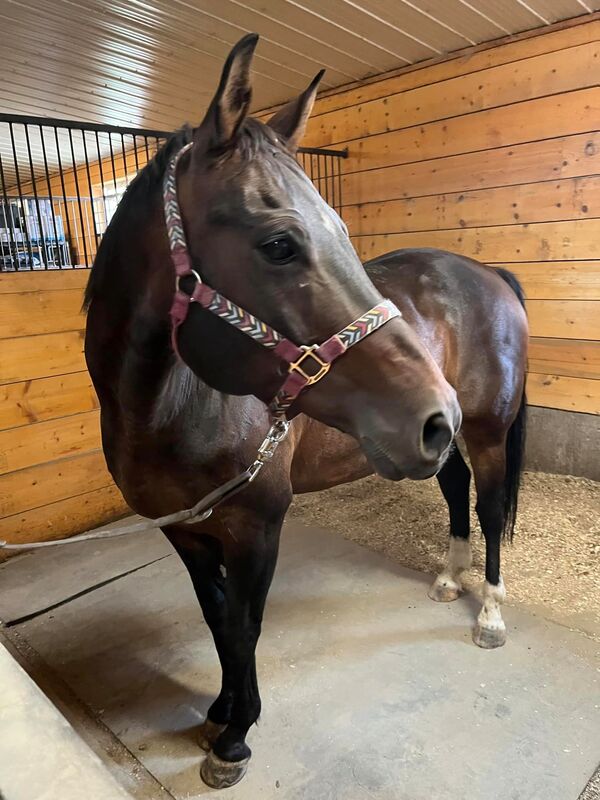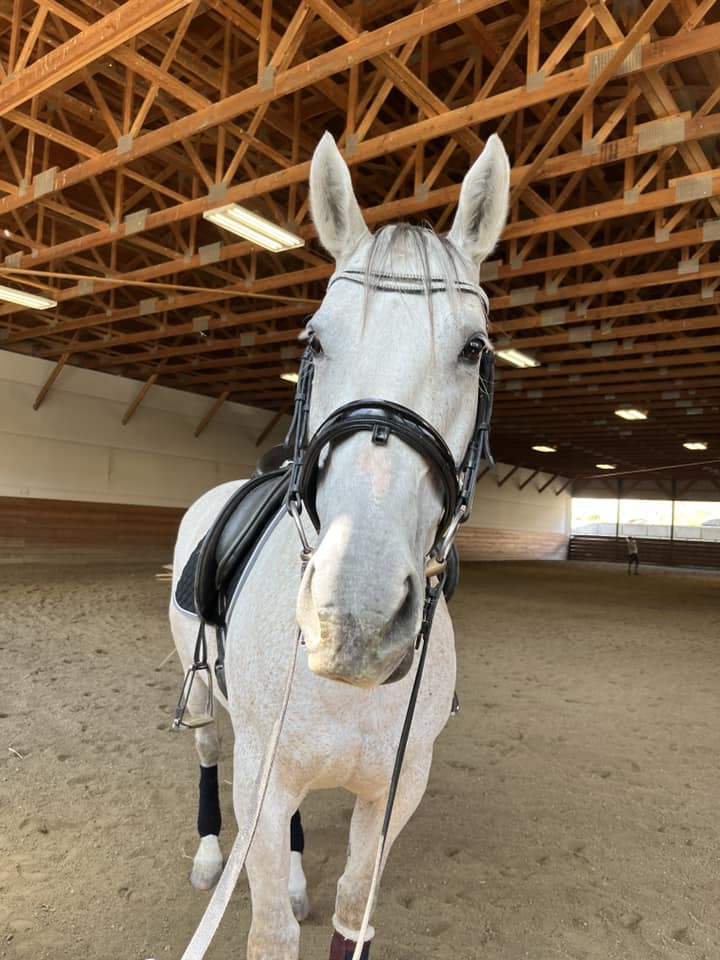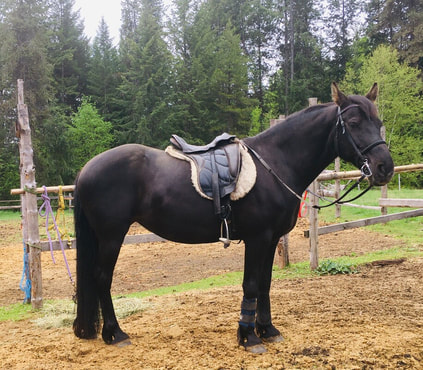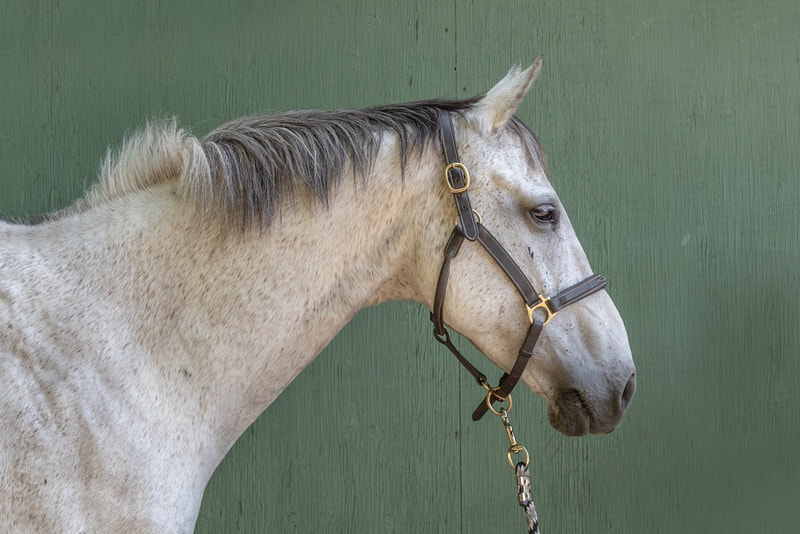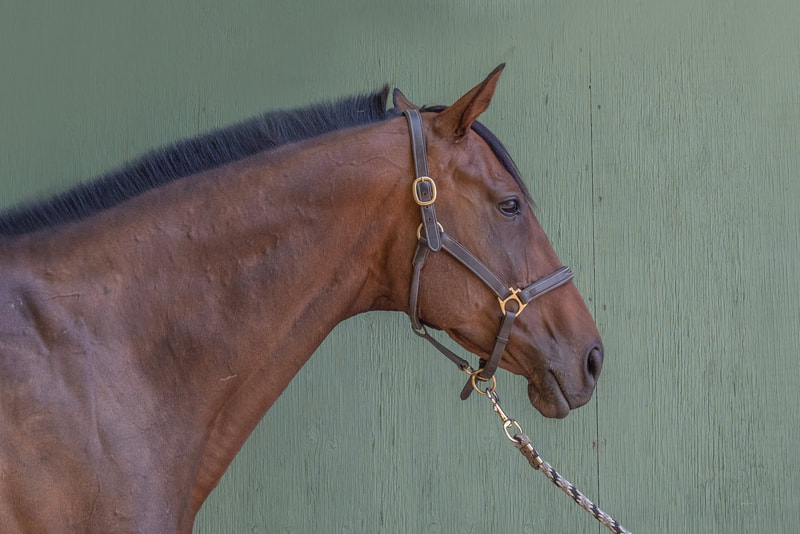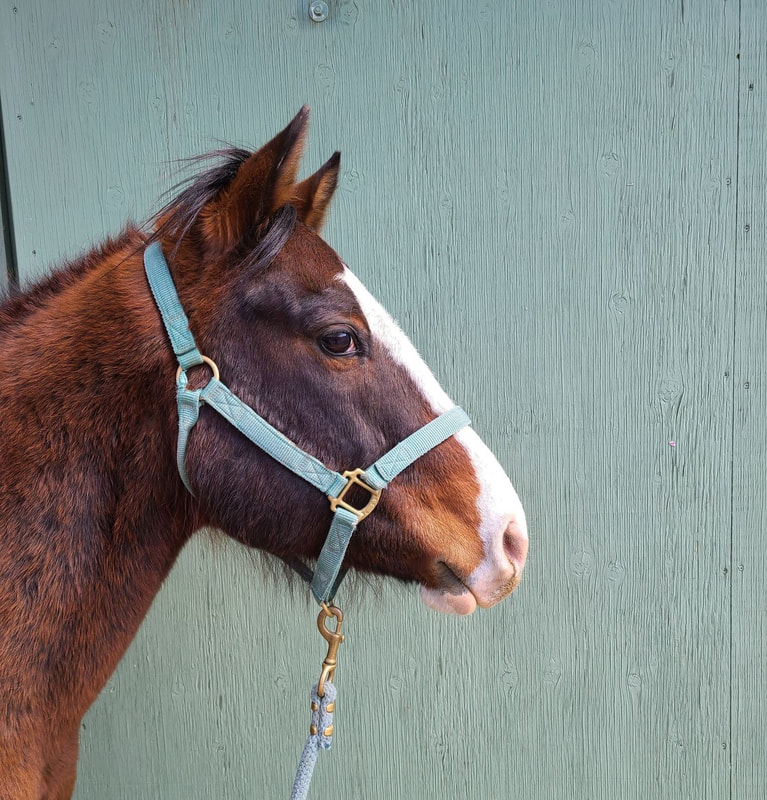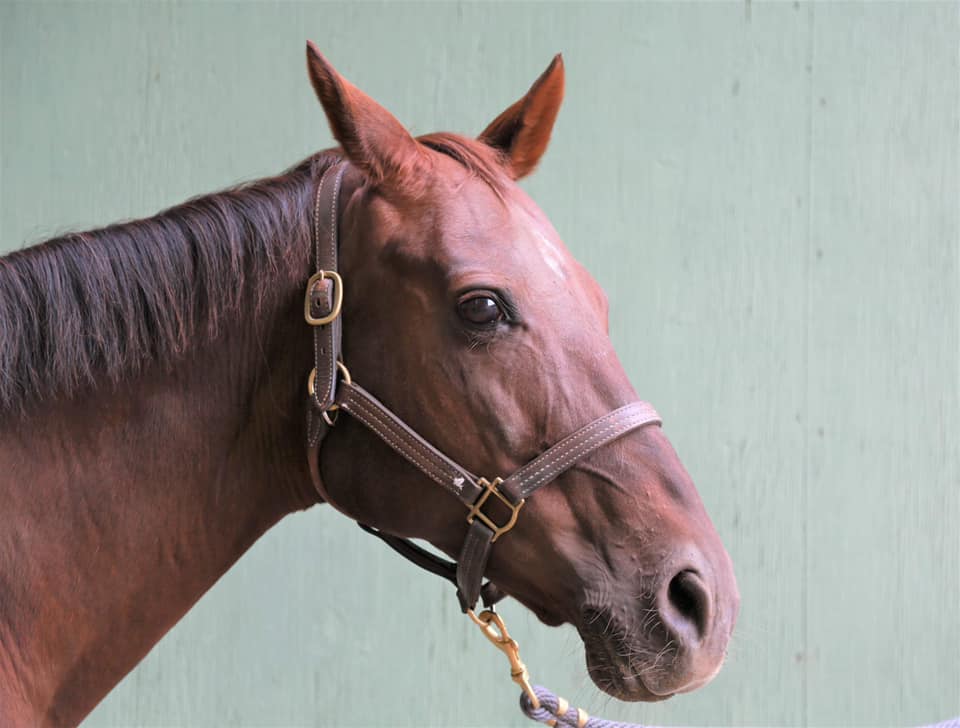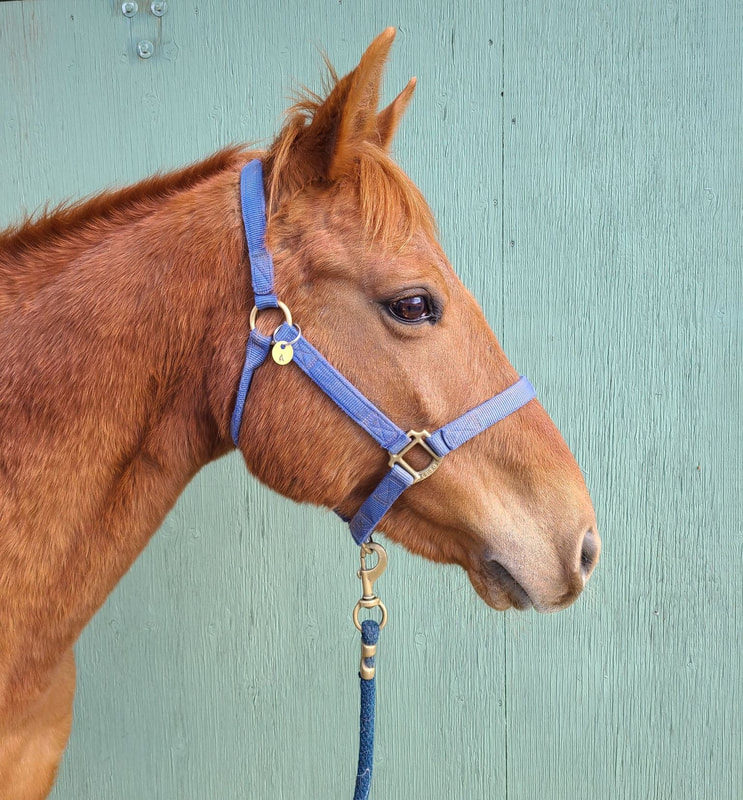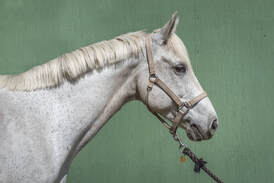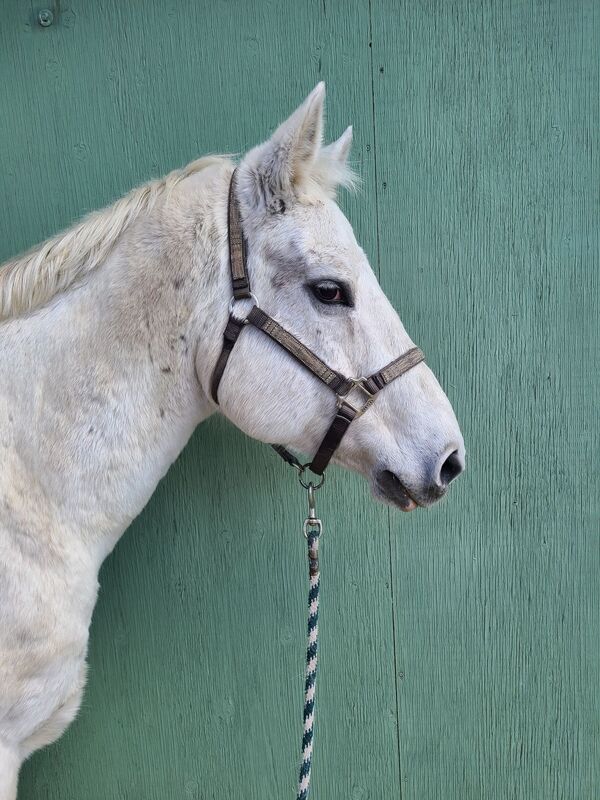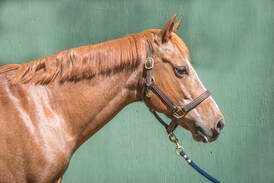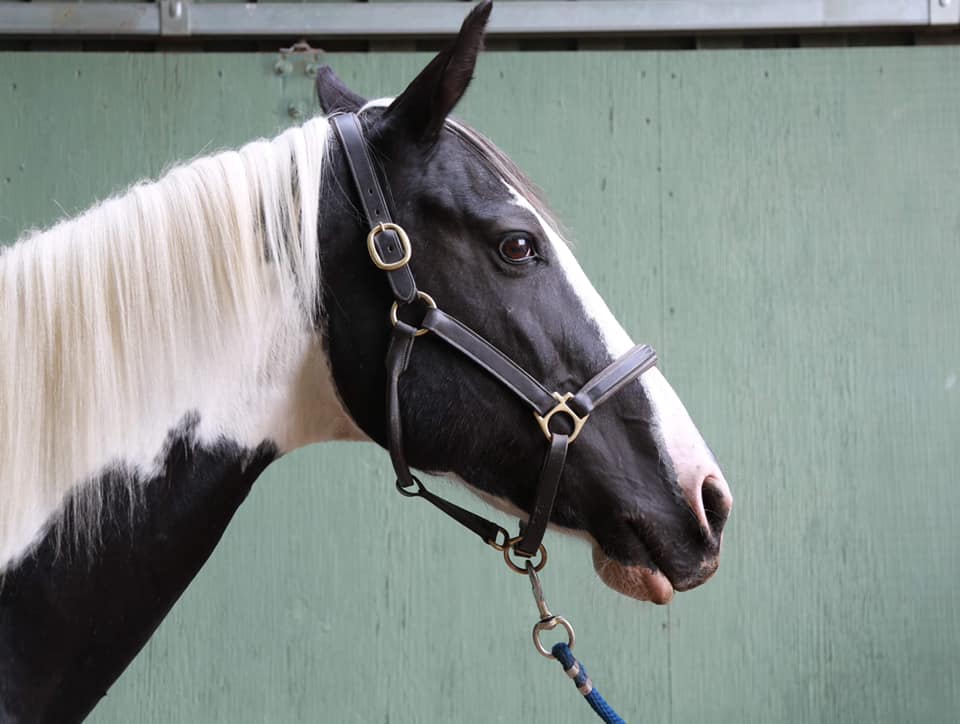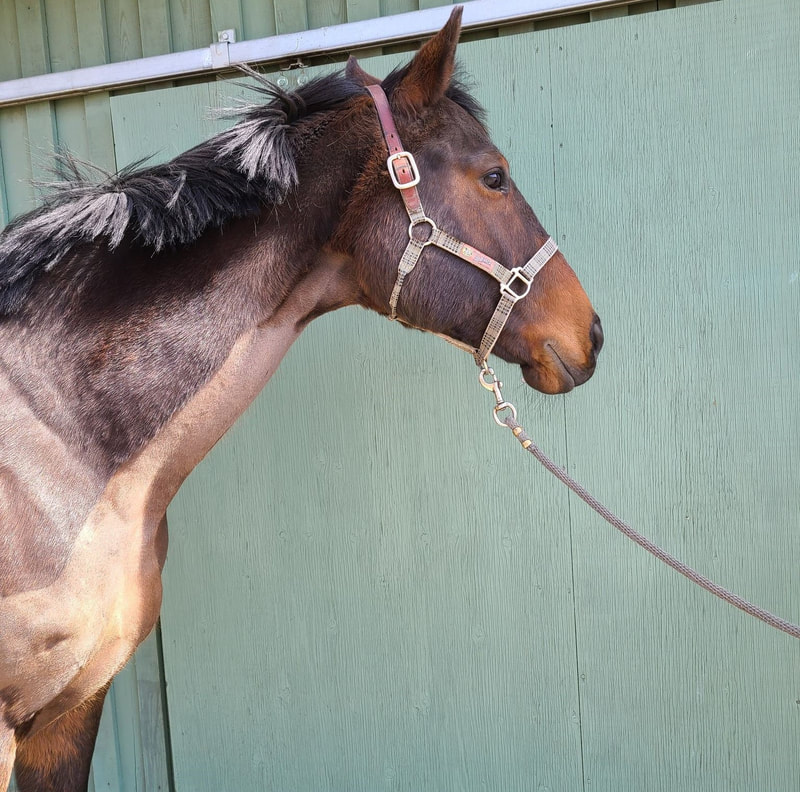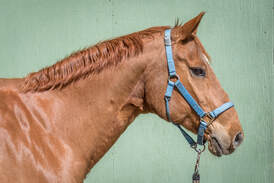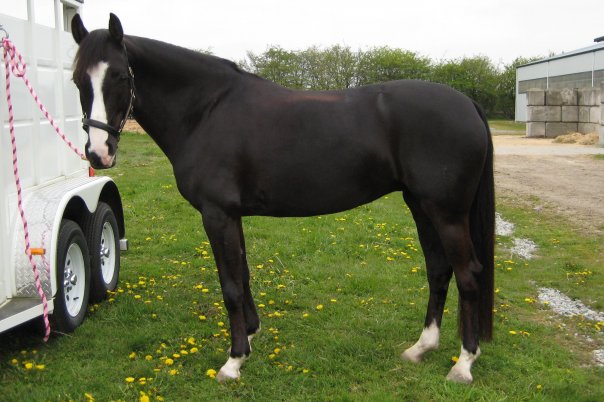Chevy~ Chevy owned by KTRA- donated by Katie Leach~
Birthday: Born in June, 2007 Breed: Canadian/Morgan Color: Chestnut Gender: Gelding Fun Facts: Before coming to KTRA, Chevy competed in eventing and explored lots of trails with his previous owner. Chevy is known for having an outgoing personality and a wild hairdo! |
Nala~ Nala is owned by KTRA ~
Birthday: Born June 14, 2017 Breed: Haflinger Color: Chestnut with flaxen mane and tail Gender: Mare Fun Facts: Nala is the youngest horse KTRA has ever purchased with the intent of "training" her to be a Therapeutic Riding horse. Nala is named after the female lion cub from the classic Disney movie "The Lion King". |
|
|
The Ideal Therapy Horse
Although Therapeutic horses come in a variety of shapes, sizes, and breeds, they tend to share some common characteristics. Most Therapeutic riding (TR) horses fall between 14 hands (the size of a large pony) and 16 hands (the size of the average race horse). A suitable TR horse will typically fall on the “stocky” side, with a short-coupled confirmation. Because some riders can have low muscle tone or difficulty balancing, even gentle work can be taxing on the muscular-skeletal system of these animals. For this reason, a sturdy bearing is important for the long-term comfort and usability. TR horses do not need to be top performers, but they must be sound and possess good, clean gaits in order to produce the type of “three-dimensional” movement (up/down, back/front, side/side) that is associated with Therapeutic benefit.
Offer a Retirement Home
Although their work with KTRA is not physically demanding, our horses are subject to quite the difficult job! For most of their lessons, our horses are lead by a horse leader but also receiving input from the student and the two side helpers. Think about how you can become overwhelmed when receiving 4 different signals of how to do the same thing! The average Therapeutic riding horse can spend about 5 years in a program before reaching burnout. KTRA allows our horses tell us they are ready for retirement in a variety of ways – some physical and some behavioral – it depends on the individual horse.
When a horse is ready for retirement, we begin the task of finding them a qualified home, one where they can spend their days just being a horse. |
If you are interested in providing a forever home for our special friends, please contact [email protected]
